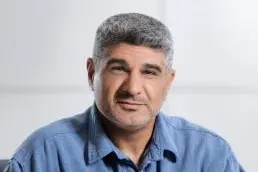PHOTO
Event will gather representatives from the global bauxite, alumina and aluminium industries
United Arab Emirates: The International Committee for Study of Bauxite, Alumina and Aluminium ("ICSOBA") and Emirates Global Aluminium ("EGA") will collaboratively host the 33rd ICSOBA Conference and Exhibition in Dubai from 29 November to 1 December. Formed in 1963, ICSOBA's main objective is to promote the exchange of ideas and findings from the various fields of research and practice related to bauxite exploration and mining as well as alumina and aluminium production.
ICSOBA 2015 marks the first time that the event is taking place in the UAE; and the conference will feature a number of international industry speakers who will cover topics including bauxite and bauxite resources; alumina production and residue solutions; primary aluminium production; carbon and carbon materials and; aluminium products and alloys. Michel Reverdy (Senior Manager: Technology Transfer, Technology Development & Transfer at EGA) has played a key role in coordinating the papers for the event.
EGA will host a dinner for delegates and conduct tours of its UAE smelter sites at Emirates Aluminium ("EMAL", also known as EGA Al Taweelah) and Dubai Aluminium ("DUBAL", also known as EGA Jebel Ali). Dr Ali Al Zarouni (SVP Jebel Ali Operations, Technology Development & Transfer at EGA), who is the current Honorary President of ICSOBA, will deliver the welcome note and present a paper during the conference.
Ten EGA papers are included in the programme (of which three are joint papers). The titles, and the EGA representatives who will present the papers, are:
· "Technology and innovation at Emirates Global Aluminium" - Dr Ali Al Zarouni (SVP Jebel Ali Operations, Technology Development & Transfer).
· "DX cell technology at 400 kA and beyond" - Rawa Ba Raheem (Lead Engineer: Process Control, Reduction).
· "Amperage increase in DX potlines at EMAL" - Shaikha Al Shehhi (Senior Manager: Process Control, Reduction).
· "A practical cost-effective solution to processing sodium reduction skimming station residue" - Shane Pollé (Lead Engineer: Process Control, Reduction).
· "Evaluation of anode cover heat loss" - Amal Aljasmi (Engineer I: Development, Technology Development & Transfer).
· "Strategy for sustaining anode quality amidst deteriorating coke quality" -
Tapan K Sahu (Manager: Process Control & Improvement, Carbon & Port).
· "The role of anode manufacturing processes in net carbon consumption" - Khalil Khaji (Manager: Process Control & Improvement, Carbon & Port).
· "An approach to a sustainable aluminium smelter design" - Muna Alamoodi (Senior Superintendent: Environment Technology, Environment at EGA) and Stephan Broek (Director Environmental Engineering and Technology at Hatch).
· "Performances of green and eco-friendly ramming pastes in EGA pots" - Mohamed Tawfik (Lead Engineer: Process Control, Reduction at EGA) and Benedicte Allard (R&D Engineer at Carbon Savoie).
· "Studies on background PFC and current distribution using individual anode signals in aluminium reduction cells" - Ali Jassim (Senior Technician: Mechanical Maintenance, Power & Desalination Maintenance at EGA) with University of New South Wales.
An 11th paper, written by Masdar Institute, was co-authored by two EGA employees.
Dr Ali Al Zarouni said, "We are delighted to welcome the 2015 ICSOBA Conference and Exhibition for its début in the Gulf. As the region's largest aluminium primary aluminium producer, EGA is committed to raising industry standards continuously, thereby building a legacy of excellence on a local and international level. The range of EGA papers presented at ICSOBA 2015 will showcase the many areas in which we are influencing change and we look forward to meeting with fellow industry leaders of the industry."
About EGA
Emirates Global Aluminium ("EGA") is a jointly-held, equal-ownership company formed by Mubadala Development Company of Abu Dhabi and the Investment Corporation of Dubai by combining their respective aluminium industry interests. EGA's core operating assets are Dubai Aluminium ("DUBAL", also known as EGA Jebel Ali) and Emirates Aluminium ("EMAL", also known as EGA Al Taweelah), whose combined annual production capacity of 2.4 million tonnes per annum ("tpa") places EGA among the top five primary aluminium producers in the world, by volume. The UAE-based EGA also owns Guinea Alumina Corporation ("GAC"), a strategic bauxite mine and alumina refinery development project in West Africa. In addition, EGA has plans for significant local growth and international expansion.
DUBAL, where commissioning began in 1979, operates one of the world's largest single-site primary aluminium smelters. The DUBAL complex, built on a 4.75 square kilometre site in Jebel Ali, Dubai, comprises a 1 million tpa smelter, a 2,350 MW power station, a large carbon plant, extensive casting operations (more than 1.2 million tpa), a water desalination plant, dock and other facilities. DUBAL holds ISO 9001, ISO 14001, ISO/TS 16949, ISO/IEC 20000-1, ISO/IEC 27001, ISO 22301, ISO 29990, ISO 50001 and OHSAS 18001 certification.
EMAL, where commissioning began at the end of 2009, is the world's largest single-site primary aluminium smelter. The EMAL complex, housed on a 6 square kilometre site in Al Taweelah, Abu Dhabi, comprises a 1.3 million tpa smelter, a 3,100 MW power station, a large carbon plant, extensive casting operations (more than 1.8 million tpa), a water desalination plant, dock and other facilities. EMAL holds ISO 9001, ISO 10002, ISO./IEC 27001, ISO 29990, ISO14001 and ISO/TS16949 certification; as well as OHSAS 18001 certification and NEBOSH certification in Occupational Health and Safety.
The combined DUBAL-EMAL portfolio comprises high quality primary aluminium products in three main categories: high purity and foundry re-melt products (for electronics and aerospace and automotive applications respectively); rolled products (for packaging, lithographic sheets and the automotive industry); and billets for extrusion and forging (for construction, industrial, transportation and automotive purposes). Busbars and anode bars are also made for the electrolytic process used to produce primary aluminium from alumina ore. Over 350 customers are served in at least 68 countries, predominantly in Asia, Europe, the MENA region and the Americas.
© Press Release 2015




















